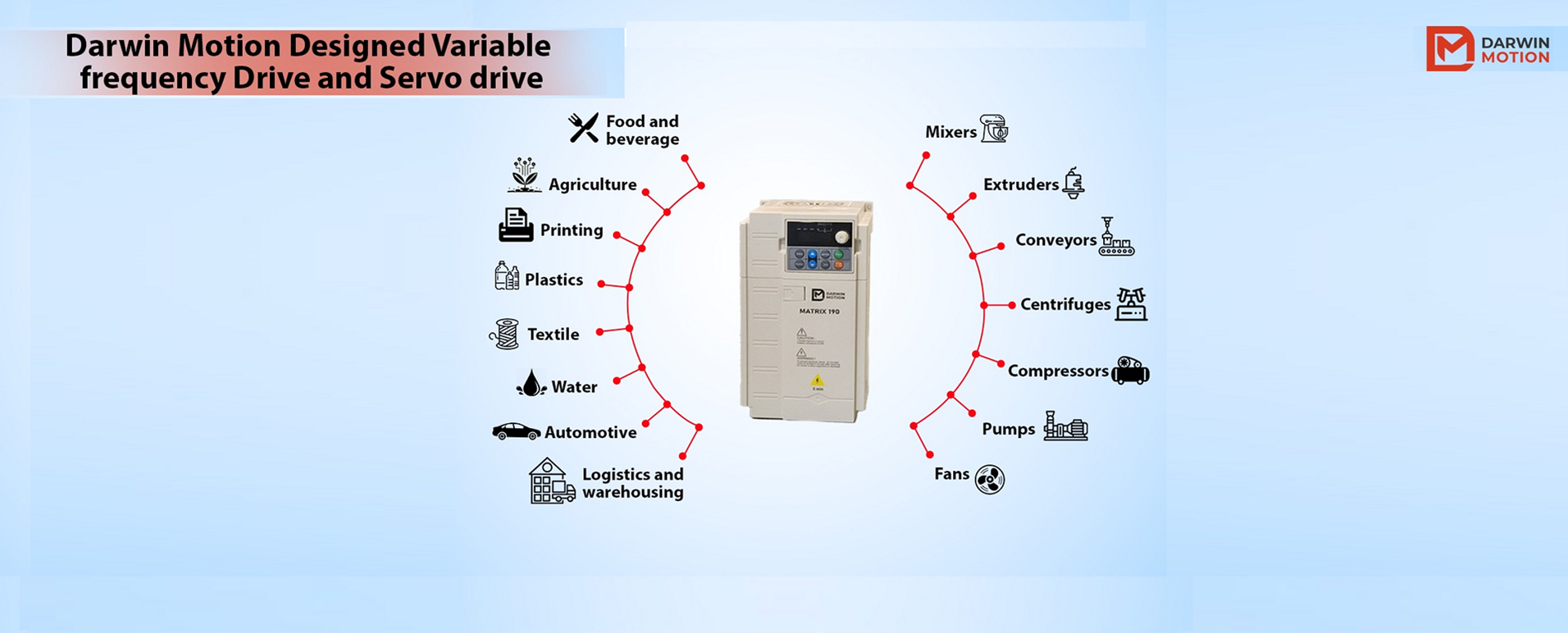Enhancing Industrial Efficiency with Variable Frequency Drive Induction Motors
Posted on 8th May 2024

In the realm of industrial machinery, efficiency is paramount. Among the various components contributing to streamlined operations, Variable Frequency Drive (VFD) induction motors stand out as game-changers. According to Darwin Motion, These innovative devices offer unparalleled control over motor speed and energy consumption, revolutionizing industrial processes across diverse sectors.
Understanding VFD Induction Motors:
At the core of a VFD induction motor lies its ability to regulate motor speed by adjusting the frequency and voltage of the power supplied to it. Unlike conventional fixed-speed motors, which run at a constant speed regardless of the load, VFD motors adapt their speed to match the requirements of the application.
Advantages of VFD Induction Motors:
Energy Efficiency: By running the motor at optimal speeds based on the workload, VFD induction motors significantly reduce energy consumption compared to their fixed-speed counterparts. This efficiency not only lowers operational costs but also aligns with sustainability goals.
Precise Control: VFD motors offer precise control over speed and torque, allowing operators to fine-tune performance according to specific process requirements. This flexibility enhances productivity and quality while minimizing wear and tear on machinery.
Soft Start/Stop: The ability to gradually ramp up or slow down motor speed eliminates the sudden jolts associated with traditional motor startups and shutdowns. This feature reduces mechanical stress, extends equipment lifespan, and enhances safety in the workplace.
Dynamic Response: VFD induction motors respond dynamically to changes in load, maintaining consistent performance even under varying operating conditions. This adaptability ensures smooth operations across a wide range of applications, from conveyors to pumps to fans.
Reduced Maintenance: With fewer mechanical components and less strain on the system, VFD motors require less maintenance compared to fixed-speed motors. This translates to lower downtime, increased uptime, and greater overall reliability.
Applications Across Industries:
The versatility of VFD induction motors makes them indispensable across a myriad of industries:
Manufacturing: From assembly lines to CNC machines, VFD motors optimize production processes by accommodating fluctuating demand with precision control.
HVAC Systems: In heating, ventilation, and air conditioning systems, VFD motors adjust fan and pump speeds according to changing thermal loads, enhancing energy efficiency and comfort.
Water and Wastewater Treatment: VFD motors regulate the flow of water and chemicals in treatment plants, ensuring optimal performance while conserving resources.
Renewable Energy: In wind turbines and solar tracking systems, VFD motors enable efficient power generation by adjusting rotor speeds and solar panel angles to maximize energy capture.
Conclusion:
Variable Frequency Drive induction motors represent a paradigm shift in industrial motor technology, offering unparalleled efficiency, control, and reliability. As industries continue to prioritize sustainability and productivity, the adoption of VFD motors is poised to accelerate, driving innovation and optimization across diverse sectors. With their ability to adapt to the ever-changing demands of modern manufacturing, VFD induction motors and
vfd drive price are indeed the driving force behind a more efficient and sustainable future.
